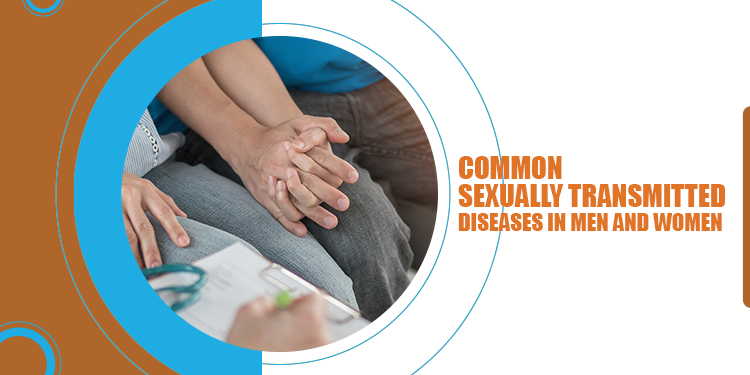- Suite 17, 117A Harley Street London, W1G 6AT
- 020 34751653
- Monday - Friday
9:00 - 18:00 - Saturday - Sunday
10:00 - 14:00

Sexually transmitted diseases are infections that are transmitted through sexual contact and intercourse. These kinds of bacteria/virus may be passed on through anal, oral or vaginal sex. Some sexually transmitted diseases such as – Hepatitis B, Chlamydia or Genital Herpes can transmit through skin to skin or non-sexual contact.
There are private STI tests for men and women to show if they have a sexually transmitted infection. This blog post discusses about how to recognise common STIs, what they look like and how they can spread from one person to another.
The most common sexually transmitted disease in women is Human Papilloma Virus or HPV. This can spread, like most STIs, through unprotected anal, oral or vaginal sex with an affected individual.
One of the reasons that HPV transmits easily is the lack of noticeable symptoms in the early stages of the infection. It may remain inactive in the body and not show any symptoms for many years. Many women will not experience any signs although they may develop genital warts. When HPV is not treated on time, it may lead to cancer some of which are:
The most common sexually transmitted disease in men is also HPV. But most men with HPV won’t experience any symptoms. Though HPV may still cause genital warts or certain kinds of cancer in men, they are usually at less risk.
Apart from HPV, there are several other common STIs to consider. Read on to find out about some of them that can occur irrespective of gender, race, or sexual orientation.
Syphilis is a common sexually transmitted disease that can occur due to an overgrowth of the bacteria Treponema Palladium. The disease may transmit at the time of sexual contact and from mother-to-baby during pregnancy.
Syphilis has three stages and these are – primary, secondary, and tertiary. During the early stages, syphilis usually appears in the form of a small and painless sore on the anus, genitals or mouth.
If it is not treated syphilis may result in a skin rash on the feet and hands. When you test for syphilis, you will be able to treat it with antibiotics.
Another common sexually transmitted infection is Chlamydia from the bacteria Chlamydia Trachomatis. Chlamydia may spread between partners at the time of intercourse or from mother-to-baby during childbirth.
Though symptoms are rare, people with Chlamydia might suffer from:
Even though you might not have any symptoms, Chlamydia may be spread without showing any visible signs. It is important to test for Chlamydia and prevent spreading it. If you have this STI, you can get it treated with antibiotics.
This is another STI which occurs due to bacteria and can spread during sexual intercourse or from mother-to-baby at the time of delivery.
In men, the symptoms might mean unusual discharge from the penis or during painful urination while for women, symptoms include bleeding between periods, increase in vaginal discharge and painful urination.
If you are experiencing any of these symptoms, then you should have an STI test. If the test result is positive, you will be prescribed antibiotics for the treatment.
This common STI occurs due to the protozoan parasite Trichomonas Vaginalis. Despite the name of this parasite, both men and women can be affected..
Though nearly 70% of people do not experience any symptoms from trichomoniasis, those who do may experience the following signs in 5 to 28 days after the infection:
As the symptoms are extremely rare, the suitable way to confirm a case of trich is by conducting a trichomoniasis test. If the result is positive, treatment will be with antibiotics
STIs might be more common than you actually think but this does not mean you should accept that catching one is unavoidable. If you are sexually active, the most suitable way to protect yourself and your sex partner is through safe sex and regular testing, even when you notice the symptoms or not. When you need to test for multiple STIs at once, there are comprehensive STI tests available for both men and women. Thus, visit a reputed clinic and perform private STI tests here for women to know whether they are sexually infected.
Our Sexual Health Clinic is located on Harley Street in the heart of London.
We are only a 5 minutes walk from Regents Park station, 10 minutes from Great Portland Street and 15 minutes from Oxford Circus.